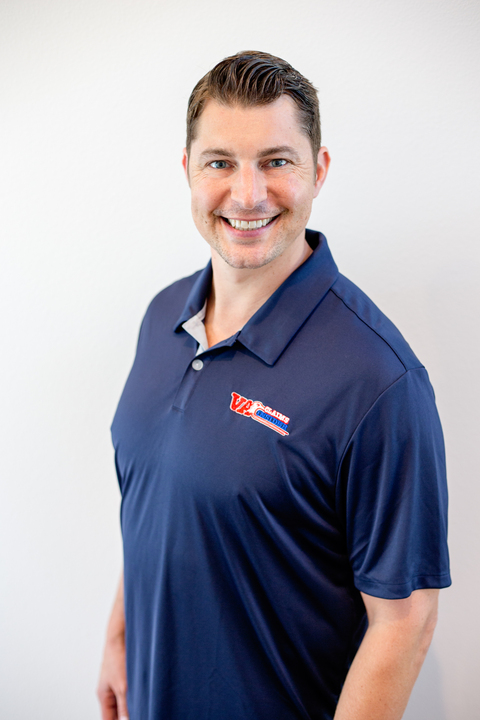Publication and Acceptance of VA DBQ Forms for Completion by Private Medical Providers Are Now Codified in the Law (Effective Immediately)

Thanks to the recently approved Johnny Isakson and David P. Roe, M.D. Veterans Health Care and Benefits Improvement Act of 2020, publication and acceptance of VA DBQ forms are now codified in federal law.
The passage of this new Bill protects veterans (and private healthcare providers) who wish to use a private DBQ as medical evidence to support their VA disability compensation claims.
Even though the VA “discontinued” the availability of public use Disability Benefit Questionnaires (DBQs) in March 2020, DBQ forms never actually went away—they CAN STILL BE used by private providers to help support a veteran’s VA disability claim.
By law, the VA Rater must consider all credible evidence submitted with a veteran’s claim for VA benefits.
- Why Veterans Should Consider Using VA DBQs
- What Are VA DBQ Forms?
- Are Public Facing Disability Benefit Questionnaires (DBQs) Authorized by Law?
- Can a VA Doctor Fill-Out a DBQ?
- Can a Publicly Available DBQ be Completed via Telehealth?
- How Much Do VA DBQs Cost from Private Medical Providers?
- About the Author
Why Veterans Should Consider Using VA DBQs
In our experience, the main benefit of using a DBQ with your VA disability claim is you are likely to get a faster and more accurate VA rating decision.
Why?
Because VA disability claims are won or lost based upon medical evidence, and VA DBQ forms help the C&P examiner and the VA Rater make/confirm the proper medical diagnosis via ICD code, determine the possible “Nexus” for service connection, and document the veteran’s current disability symptoms in accordance with CFR Title 38 Part 4 the Schedule for Rating Disabilities.
Also, DBQs are an important part of the VA’s Fully Developed Claims (FDC) program, which can help veterans maintain control of their VA claim, and get a faster and more accurate VA claim decision.
==> Want to speed-up your VA claim? Read this article!
What Are VA DBQ Forms?
VA DBQs are standardized .pdf forms used by private medical providers who conduct disability examinations for veterans pursuing VA disability benefits.
There are currently more than 70 DBQs that address a wide range of medical conditions from PTSD to Sleep Apnea to GERD to various musculoskeletal conditions.
Information included on a DBQ completed by a private doctor is medical evidence that the VA must consider when deciding a claim for VA disability benefits.
If you are looking for the public use DBQ forms library, the NVLSP recently made all public use DBQs available again for digital download on their website.
Are Public Facing Disability Benefit Questionnaires (DBQs) Authorized by Law?
Yes, publicly available VA DBQ forms are now codified in federal law thanks to the recent passage of the Johnny Isakson and David P. Roe, M.D. Veterans Health Care and Benefits Improvement Act of 2020, regardless of what the VA says about DBQs on their website.
Furthermore, the new law mandates that ALL medical information provided by a veteran will be considered EQUALLY, regardless of whether it is provided by a VA medical provider, contracted Compensation and Pension (C&P) examiner, or private healthcare provider.
The new law also protects claimants who use a previous version of the DBQ form and prevents the VA from denying a veteran’s claim because of an old form:
(A) Accept the previous version of the [DBQ] form filed by a claimant if—
(i) The claimant provided to the non-Department medical provider the previous version of the form before the date on which the updated version of the form was made available; and
(ii) The claimant files the previous version of the form during the one-year period following the date the form was completed by the non-Department medical provider.
(B) request from the claimant (or from a non-Department medical provider if the claimant has authorized the provider to share health information with the Secretary) any other information that the updated version of the form requires; and
(C) apply the laws and regulations required to adjudicate the claim as if the claimant filed the updated version of the form.
The passage of this new bill is a HUGE WIN for veterans, because in the past, some terrible C&P examiners (and VA Raters) alike attempted to discount the credibility of a privately prepared DBQ – this is no longer allowed by law.
Read this BVA case decision where a BVA judge “calls-out” a terrible C&P examiner and VA Rater for discounting the value of private medical evidence.
Finally, the new law describes that the “VA Secretary may not discontinue the use of the disability benefit questionnaire forms until a replacement form or process is implemented.”
Can a VA Doctor Fill-Out a DBQ?

No, most VA doctors will NOT complete VA DBQ forms for veterans.
Because VA doctors are “hired in the service of VA,” according to VA regulation, they are NOT appropriate medical experts for the purposes of providing medical evidence and independent medical opinions in support of a veteran’s VA disability claim.
Why?
Because VA doctors are not considered “independent.”
Most veterans will need to find a private doctor to complete VA DBQs and Medical Nexus Letters for you.
Furthermore, according to 38 CFR 3.328, contracted C&P examiners from private companies who perform examinations during the usual claims process are also considered as “hired in the service of VA,” and therefore, are NOT appropriate medical experts for the purposes of providing an independent medical opinion.
Can a Publicly Available DBQ be Completed via Telehealth?

Yes, DBQs can be completed via telehealth.
There is no legal requirement that a privately prepared DBQ be done in-person versus telehealth.
In fact, according to the VA’s own website, telehealth DBQ examinations are treated the same as in-person examinations for VA rating purposes.
Contracted private C&P examiners are using telehealth DBQs for a wide variety of disability conditions, especially considering the risk factors of COVID-19 for in-person exams.
However, some DBQs may not be appropriate for telemedicine, especially if the condition requires a physical examination, such as a Range of Motion (ROM) test with a goniometer.
By law, neither the C&P examiner nor the VA Rater can summarily discount a privately prepared DBQ completed via telehealth.
Medical evidence is medical evidence.
All credible evidence of record must be reviewed by the VA Rater (and considered) prior to making a VA claim decision.
However, not all evidence is created equal.
Evidence may have more (or less) PROBATIVE VALUE.
How Much Do VA DBQs Cost from Private Medical Providers?
A privately provided disability examination and DBQ form can cost anywhere from a couple hundred dollars to $10,000 or more, depending upon the credentials and experience of the doctor.
You might be able to get your own private doctor to complete a DBQ for you FREE of charge, especially if completed in conjunction with another examination.
The average cost of a disability examination to include a completed VA DBQ form from a private doctor in 2021 is around $1,500.
About the Author

Brian Reese is one of the world’s leading Veteran Benefits expert, former USAF active duty officer, and founder of VA Claims Insider – “The Most Trusted Name in Education-Based Resources for Veterans.”
His frustration with the 8-step VA disability claims process led him to create “VA Claims Insider,” which provides U.S. military veterans with tips, strategies, and lessons learned to win their VA disability compensation claim in less time.
Brian is also the CEO of Military Disability Made Easy, which is the world’s largest free searchable database for all things related to DoD disability and VA disability, and has served more than 6,000,000 military members and veterans since its founding in 2013.
He is a former active duty Air Force officer with extensive experience leading hundreds of individuals and multi-functional teams in challenging international environments, including a combat tour to Afghanistan in 2011 in support of Operation ENDURING FREEDOM.
Brian is a Distinguished Graduate of Management from the United States Air Force Academy, Colorado Springs, CO and he holds an MBA from Oklahoma State University’s Spears School of Business, Stillwater, OK, where he was a National Honor Scholar (Top 1% of Graduate School class).

